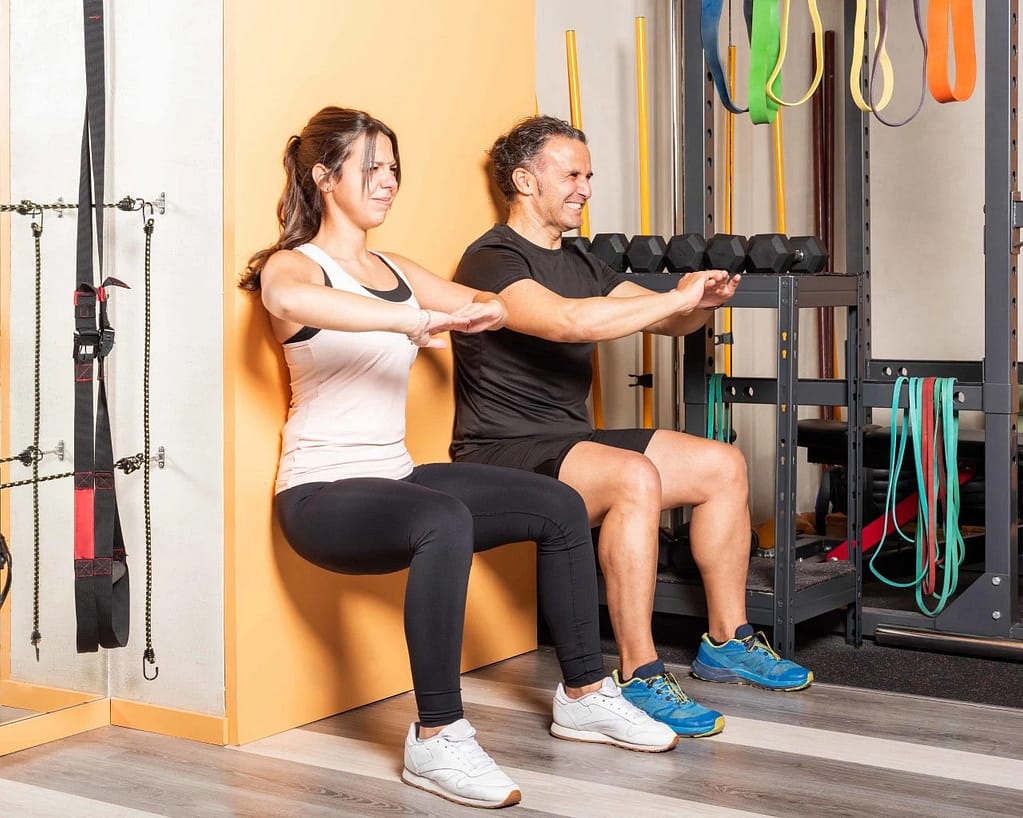What exercise is most effective in combating depression?
In this rapidly changing world, each of us is racing against time and battling various pressures in life.
On this long road, we sometimes feel powerless and even trapped by depressive emotions.
How is exercise mentioned as a solution to combat anxiety and depression?
Exercise, this seemingly ordinary yet magical power, can awaken the vitality deep within us and help us rediscover the joy of life.
Whether it’s the grace and strength of yoga, the passion and freedom of running, or the tranquility and release of swimming, these activities can calm our depressive moods.
Next, let’s explore specific and feasible exercises and activities suitable for depressed teenagers, women, and the elderly.

Teenagers:
Teenagers are at a critical stage of growth and development, facing multiple pressures from academics, life, and social interactions.
To relieve these pressures, teenagers can choose some relaxed and fun ways to exercise.
For example, engage in one hour of outdoor activities daily, such as running, cycling, or hiking.
Additionally, participating in team sports like basketball, soccer, or badminton can help teenagers make new friends, enhance team spirit, and alleviate depressive emotions.
Specific activity suggestions:
- Join school or community sports clubs and participate in regular team competitions.
- Organize weekend outdoor activities with friends, such as hiking, camping, or picnicking.
- Participate in volunteer activities during spare time, like environmental protection or animal care, to increase social interactions.
Women:
Women often pay more attention to body flexibility and the cultivation of temperament. Exercises like yoga and Pilates are very suitable for women.
These exercises, through stretching and breathing practices, can help women shape beautiful body lines and improve flexibility.
They can also find moments of tranquility in their busy lives, releasing depressive emotions.
In addition, women can choose some aerobic exercises like jogging, swimming, or brisk walking.
Women with the conditions can go to the gym to learn boxing, dumbbell exercises, or practice squats, lunges, and push-ups at home.
Exercise can also be integrated into daily life, such as taking a five-minute exercise break after an hour of work, doing lunges, push-ups, or calisthenics, which can be done anytime, anywhere.
This not only relaxes stiff muscles and relieves back pain but also gives the brain a short rest.

Specific activity suggestions:
- Attend yoga classes to learn different styles of yoga, such as Hatha yoga or Ashtanga yoga.
- Join fitness classes with friends, like Zumba or Latin dance, to increase the fun of exercising.
- Spend weekends hiking or cycling outdoors, getting close to nature.
- Go shopping, buy things, check out handsome guys, and do crafts with friends to get moving.
Young Men:
Running, strength training, and interval training are often suitable for men.
Male depression is hard to detect. Most men are taught “real men don’t cry” from a young age, and due to strong self-esteem, they often deny or hide mental issues like depression.
Specific activity suggestions:
For men, solo exercise might be more suitable.
When feeling anxious, depressed, or restless, young men could go for outdoor running or cycling.
This not only alleviates tension but also reduces the risk of depression with sunlight exposure, and changing outdoor scenery can calm the mind.
Elderly:
For the elderly, physical functions gradually decline, making joint pain and muscle atrophy common issues.
Therefore, elderly people should choose low-intensity, highly safe exercises.
Tai Chi, Qigong, and walking are very suitable for the elderly.
These exercises, through slow and gentle movements and breathing practices, help the elderly regulate their body and mind, enhance immunity, and prevent diseases.
Additionally, participating in community-organized activities like square dancing, singing, or painting classes can bring joy through social interactions and enrich their later years.
Specific activity suggestions:
- Join community Tai Chi or Qigong classes to learn proper movements and breathing methods from instructors.
- Walk with neighbors every morning or evening, sharing life experiences.
- Participate in community cultural activities like choir or dance performances to showcase talents.
In conclusion, whether you are a teenager, a woman, or an elderly person, exercise is an effective way to combat depression.

We should choose the most suitable exercise according to our circumstances and interests.
Of course, sometimes we may not want to exercise, in which case we can do something within our abilities.
Take a walk, feel the breeze, watch a movie, or play a game. Being able to move even a bit is already great when deeply depressed.
When feeling better, try other activities like yoga, walking, playing ball, Tai Chi, reading, writing a journal, or reading. Feeling positive feedback will make us feel better.
Generally, follow medical advice without putting too much pressure on yourself.
Do your best, go at your own pace, and praise yourself for any exercise done. No need to feel guilty if you can’t move.


